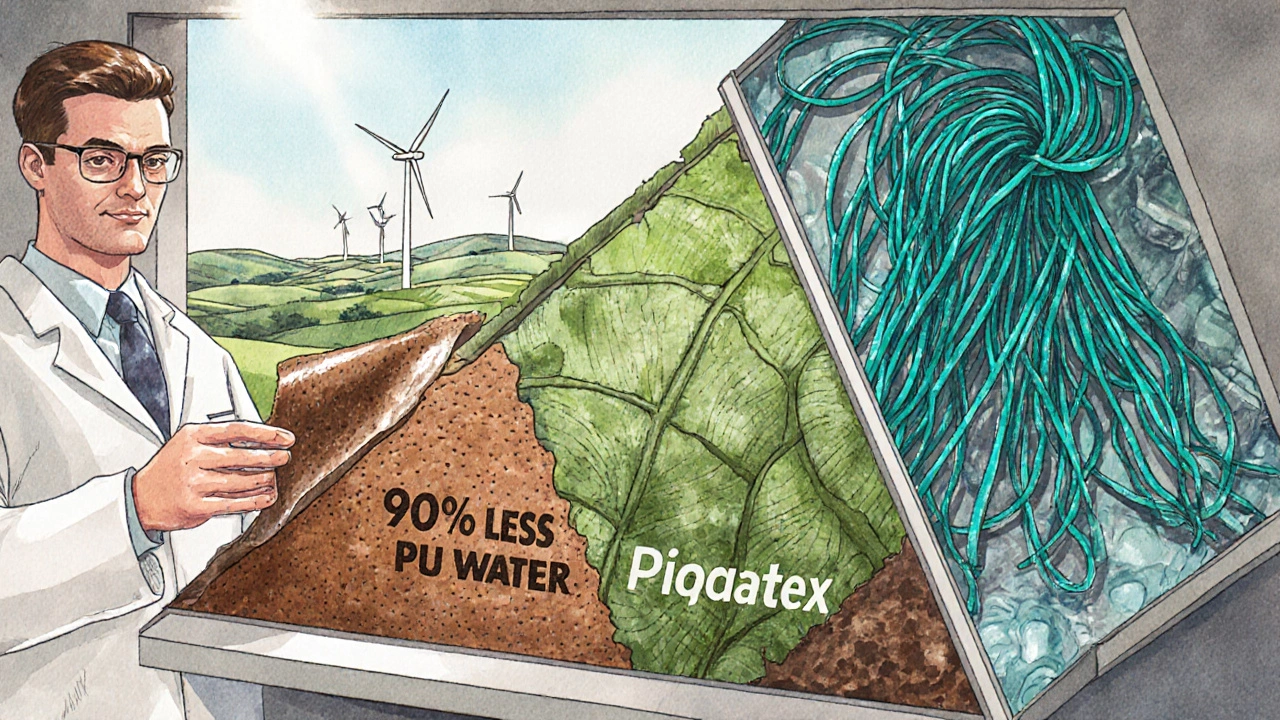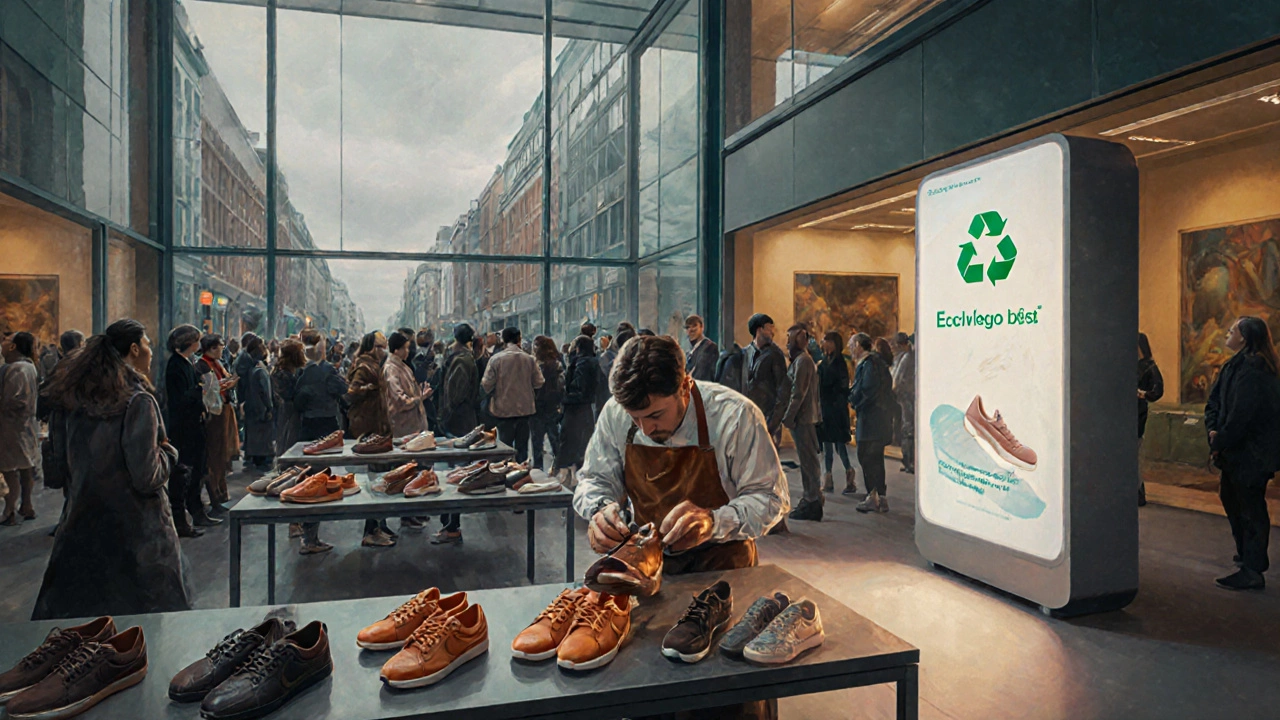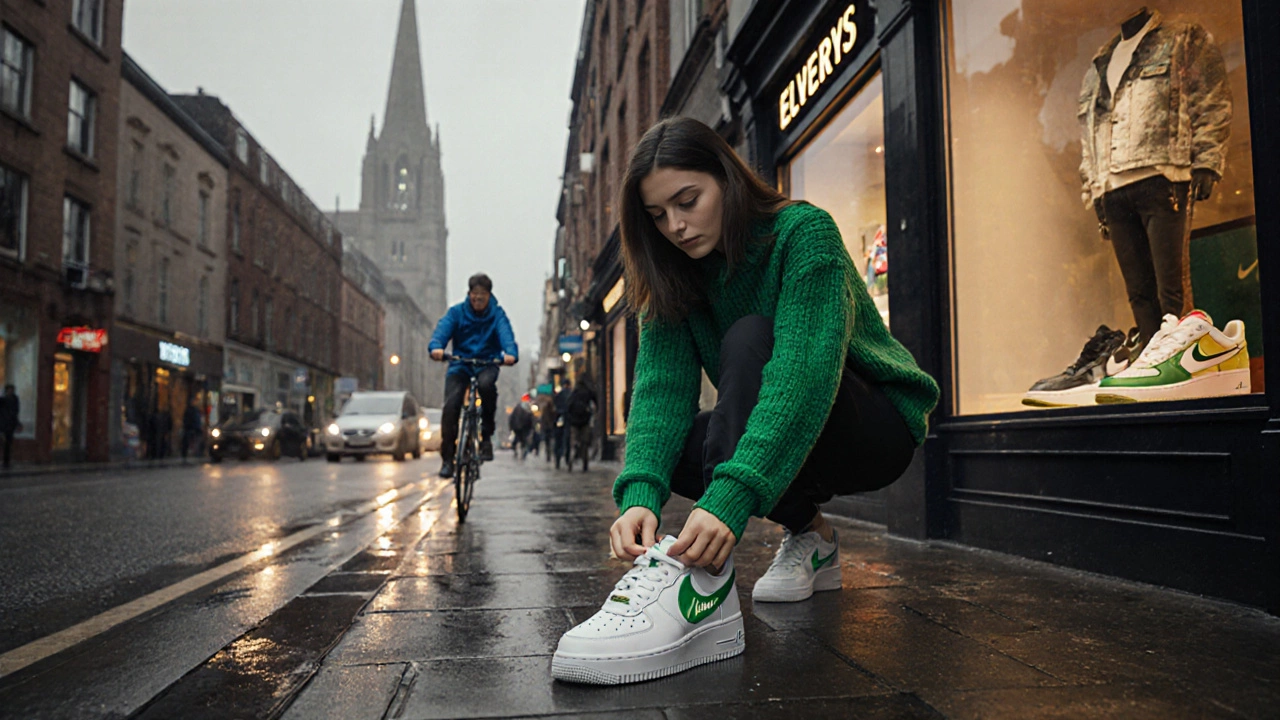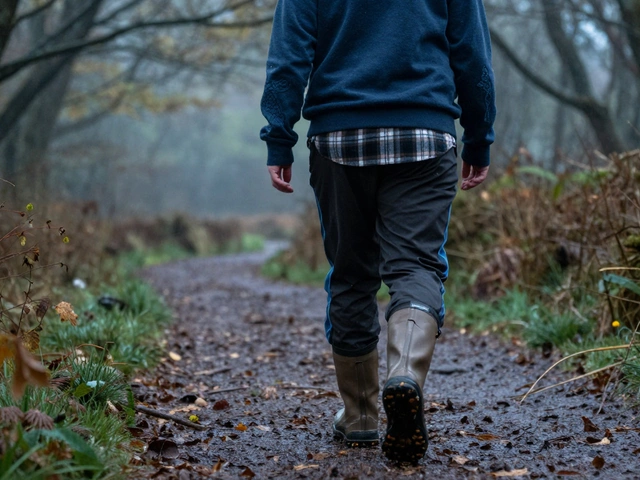Shoe Carbon Footprint Calculator
Calculate Your Footprint
Your Environmental Impact
Total CO₂ Emissions:
Equivalent to:
When you walk the streets of Dublin, Cork or Galway, you’ll notice a growing number of shoes that proudly display a leaf or a "vegan" label. The Nike is a global sportswear giant that designs, develops and sells athletic footwear, apparel and equipment has joined this wave, announcing a Nike leather ban that has reshaped the Irish market.
What Sparked the Change?
Three forces converged in early 2024 to push Nike off leather:
- Environmental impact - leather production accounts for roughly 4% of global greenhouse gas emissions, according to the World Resources Institute.
- Animal welfare - activist groups such as PETA and Irish animal rights charities highlighted the cruelty involved in cattle rearing.
- Consumer demand - a 2023 YouGov survey showed that 68% of Irish shoppers aged 18‑34 would pay more for a shoe made without animal products.
These data points forced Nike to reconsider its material strategy, especially as the Irish market leans heavily into sustainability.
Irish Consumers Lead the Charge
In Ireland, the sustainability conversation is not limited to Dublin’s tech hubs. Rural towns host community‑run swap events, and the annual Dublin Fashion Festival 2025 dedicated an entire runway to “Eco‑Performance”. Retailers like Elverys Ireland’s largest sporting‑goods chain, with stores in Dublin, Limerick and beyond report a 22% rise in sales of vegan sneakers since 2022.
The Irish Government’s Climate Action Plan 2025 set a target to reduce the carbon footprint of imported footwear by 30% by 2030, encouraging brands to disclose material origins. Nike’s decision aligns perfectly with these policy goals, making it easier for Irish retailers to showcase compliance.
From Leather to Lab‑Made: Nike’s Material Arsenal
Instead of traditional hide, Nike now leans on three main alternatives:
- Engineered leather - a fiber‑reinforced polyurethane that mimics the look and feel of real leather while using 90% less water.
- Plant‑based leather - derived from pineapple leaves (Piñatex) or apple peels, offering a biodegradable option.
- Recycled polyester - made from post‑consumer plastic bottles, providing durability for the iconic Air Max outsole.
These materials are certified by the Global Recycled Standard (GRS) and the Leather Working Group (LWG) for reduced environmental impact.

How the Switch Affects Irish Retailers
When Nike announced the phase‑out, store managers at Brown Thomas a luxury department store on Grafton Street, Dublin, known for high‑end fashion quickly re‑stocked the new Vegan Air Force 1 line. The result? A 15% increase in foot traffic from eco‑conscious shoppers during the launch week.
Smaller boutiques in Galway’s Latin Quarter have also embraced Nike’s shift, pairing the shoes with locally‑sourced hemp socks, a nod to Ireland’s growing hemp textile scene.
Comparison: Nike’s Vegan Line vs. Allbirds’ Tree‑Linen Shoes
| Feature | Nike Vegan (2025) | Allbirds Tree‑Linen (2024) |
|---|---|---|
| Upper Material | Engineered PU leather | Tree‑derived linen |
| Midsole | Recycled polyester foam | Natural sugarcane EVA |
| Carbon Footprint (kg CO₂e) | 2.3 per pair | 1.8 per pair |
| Price (EUR) | €129-€149 | €119-€139 |
| Irish Availability | Elverys, Brown Thomas, Nike.com.ie | Allbirds.ie, selected lifestyle shops |
Both brands score high on sustainability, but Nike’s broad distribution network gives Irish shoppers easier access, while Allbirds edges ahead on carbon reduction.
Practical Tips for Irish Shoppers
- Look for the “Vegan” tag on the Nike box or on the Nike.com.ie product page.
- Check the material badge - engineered leather will list “PU” or “synthetic leather”.
- Ask staff at Elverys or Brown Thomas about the product’s GRS certification.
- Support local sustainability initiatives, like Dublin’s “Eco‑Sneaker Swap” hosted at the Irish Museum of Modern Art each spring.
- Consider a repair service - many Irish cobblers now offer stitching for engineered leather, extending shoe life and reducing waste.

Common Misconceptions
1. “Synthetic means lower quality.” - Engineered leather can outperform traditional leather in abrasion resistance, especially for athletic wear.
2. “Vegan shoes aren’t breathable.” - Plant‑based leathers are naturally porous, and Nike’s new mesh linings improve airflow.
3. “Irish weather ruins eco‑shoes.” - Water‑repellent coatings on Nike’s vegan range keep feet dry during rainy Dublin days.
Looking Ahead: What’s Next for Nike in Ireland?
By 2027 Nike aims to have 40% of its global footwear portfolio free from animal‑derived materials. In Ireland, the brand plans to launch a “Circular Sneaker” program in partnership with the Dublin City Council, allowing customers to return worn shoes for recycling into new midsoles.
This initiative dovetails with Ireland’s “Zero Waste” targets, promising a future where your next pair of running shoes might be made from a blend of recycled plastic bottles and local flax fibers.
Quick Takeaways
- Nike stopped using leather to meet environmental, animal welfare and Irish consumer demands.
- The Irish market’s push for sustainable fashion accelerated the change.
- Engineered, plant‑based and recycled materials now dominate Nike’s shoe lines.
- Local retailers like Elverys and Brown Thomas have already stocked the vegan range.
- Irish shoppers can verify sustainability claims via GRS labels and store staff.
Why did Nike decide to stop using leather?
Nike responded to rising greenhouse‑gas emissions from leather production, growing animal‑rights concerns, and strong demand from Irish shoppers for cruelty‑free footwear.
What materials replace leather in Nike shoes?
The brand now uses engineered PU leather, plant‑based fibers like Piñatex, and recycled polyester for midsoles. Each option reduces water use and carbon output.
Are Nike’s vegan shoes as durable as the leather versions?
Yes. Engineered PU leather often exceeds traditional leather in abrasion resistance, and the recycled midsole foam maintains cushioning for miles of running on Irish roads.
Where can I buy Nike’s vegan sneakers in Ireland?
They’re stocked at Elverys, Brown Thomas, and on Nike.com.ie. Some local sneaker boutiques in Cork and Limerick also carry the range.
How can I verify the sustainability claims?
Look for the Global Recycled Standard (GRS) badge on the box and ask sales staff for the product’s material composition sheet.





